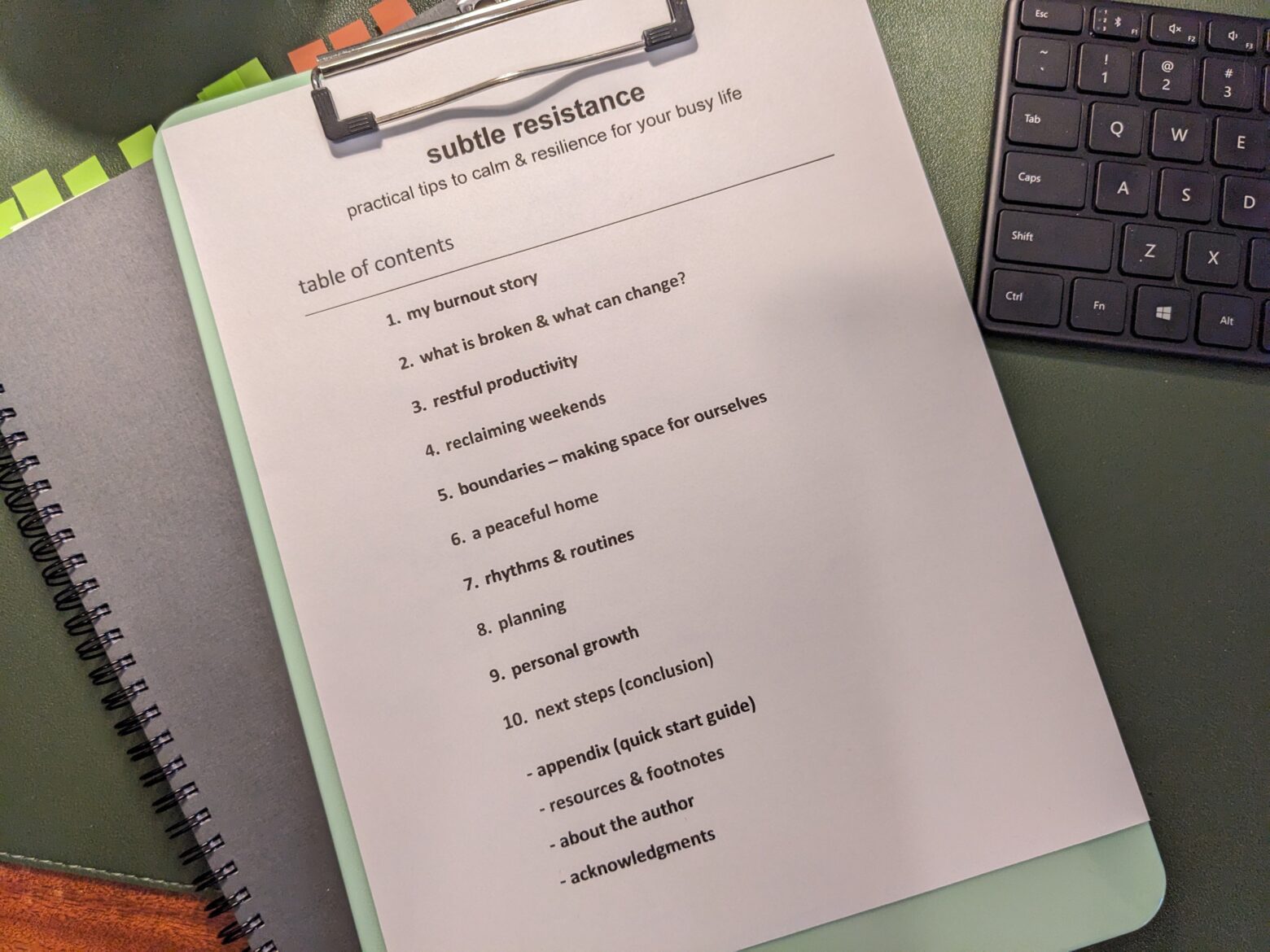I have found so much comfort in my Writing Routine. Through the process of slowing down, and getting settled in my space, I can transition smoothly. I can turn my attention to the tasks of my writing session. I can leave my “Mom Brain” and get into “Writing Mode”. Habits are super important when adding the hobby/job of writing.
It used to take me 4 hours to get into a state of flow. I had to have enough time so that I could write something that made sense. I really struggled with the transition of everything swirling around in my mind. I also had a hard time with interruptions and distractions. My focus was all over the place.
Now, I can get focused in about 10 minutes. My writing session still needs to be at least an hour or more to get quality work. But, with my Writing Session Routine, I am able to get much more done in a shorter amount of time.
What do you see in my process below that you can take and adjust for your own writing life?

Photos by Jessica Lewis and others on Unsplash
April’s Writing Session Routine:
Each day will look different depending on my time, my ability to think, the number of interruptions, and how inspired I am.
And that is okay.
Progress is more important than perfection.
My Daily Writing Ritual:
Set up my workspace so that I get into the writing zone.
- I schedule my writing time and prep for it beforehand so that I can avoid interruptions.
- I get a fresh cup of coffee or my straw cup of ice water (and maybe a snack).
- I communicate with my people in my house, I put my phone on Focus Mode, and go to my desk.
- I light my candle and start my writing playlist (my favorite playlist on Spotify)
- Now it sounds and smells like my writing time. Yes, this sounds strange but it makes a huge difference. Engaging my other senses helps me make that mental leap into writing.
- I assess my current state.
- How do I feel right now? What am I thinking about?
- What kind of work am I ready for today?
- What do I need to work on? How can I slow down and focus on what matters?
- I often have to take 5 slow deep breaths, roll my shoulders, adjust my posture.
- How much time do I have? How much energy do I have?
I work on writing.
- I choose something to work on and then get started.
- If I don’t have a particular article in mind of where to start then I just open a new document and do a morning pages style activity or get out my Morning Pages Journal.
- Or I browse the articles that are messy drafts that need some revision.
- I look over my Writing Work Sessions list. (see this article for more info: Making Progress in Your Writing )
- I have the my list printed out and hanging on a clipboard above my desk.
- Set a timer for how much time I have to work.
- (I subtract 15 minutes and use that last piece to finish well – see below.)
Usually, I can get in the zone for whatever space of time I have. (It needs to be at least an hour.)
- I write for as much time as I can and do my best to stay focused on the task.
- I choose to be kind to myself but also push myself to do great work.
I end my work session well.
- When my timer goes off I have 15 minutes left in my writing session.
- I take that time to finish well. I give myself time for the transition.
- After each writing session I notate in my writing notebook what I was able to get done.
- I make a Ta-Da List to celebrate my progress.
- I list out what I hope to do next. This gives me an updated task list for projects and articles.
- Brain Dump: I usually take a minute to get out my Bullet Journal and write out any household tasks and things that need to be done. While my brain is still engaged I write out all the tasks that I need to do. Then when I transition back into “Mom mode” I know what I need to do next.
- I clear off my desk and clean up my space.
What do you see in my process that you can take and adjust for your own writing life?

Questions:
“The most important thing is to know ourselves, and what works for us.”
– Gretchen Rubin
This is what has been working for me these past few months.
What works for you?
How do you get into “Writing Mode” in the midst of a busy day?
“For now, when it comes to restarting a life-giving rhythm, you just need to clear your physical space. Once you’ve picked up and cleared your physical space, it’s time to do the same thing for your inner space, your inner life, same thing that you just did for your outer life. So take a deep breath in, and a long breath out. Then repeat that two or three times. This right now is your only job.”
– Emily P. Freeman
How do you begin your Writing Sessions?
What do you do to start well?
What do you enjoy working on?
“…I have started to intentionally create “finishing lines” at the end of every day. This is a space where I draw an imaginary line in the sand and choose to put the day behind me, shifting my attitude, heart, and thoughts towards the next part of my day—whether that’s exercise, recreation, or family time.”
– From Michael Hyatt
In what ways do you finish well?
How can you improve your work-ending routine?

Habits are super important when adding the hobby/job of writing. I hope you find some comfort in my Writing Session Routine. Through the process of slowing down, and getting settled in your space, you can transition smoothly. You can turn your attention to the tasks of the writing session. I hope that you can leave “Mom Brain” and get into “Writing Mode”. That you are able to find space to write in the midst of a busy day.
I’m planning on writing more articles about my writing process. As you can see I enjoy talking about this. Let me know if you have any questions. 🤣
I would love to hear your writing process and what works for you.
📝💻 Happy Writing! – April


Writing is layered and difficult. There are so many pieces to starting something new and making space for creativity.
Here are some articles to help:
- This article will help you if you are stuck and not sure how to get started with writing.
- See this article for how I make space for my writing:
You are ready to share your message, you have made space for writing… now what next?
- What if the words don’t just flow onto the page like you had hoped?
- I have learned that my energy and my time are the most valuable assets for me to keep an eye on.
- Or maybe you need space in your household duties.
- More on the basics of energy levels and how I use them in my home: 5 Energy Levels in Homemaking.
-
What is “Subtle Resistance”?
When we are surrounded by specific norms, we no longer see them as optional but as “the way life is”. I want to challenge a few of those… Let’s jump right in! Here is how I define these words in the beginning pages of my book: subtle – (adj.) nuanced, delicate, skillful, laid back (verb)……
-
6 Quick Tips for Planning Weekend Trips
How to plan your Weekend RV/Camping Trips so that they actually happen.🙂 In our family, we want weekend RV trips to occur frequently. But this takes some planning and some intention. Weekends away do not magically appear (nor does the budget to pay for campsites, or time to pack). I have discovered there are specific……


